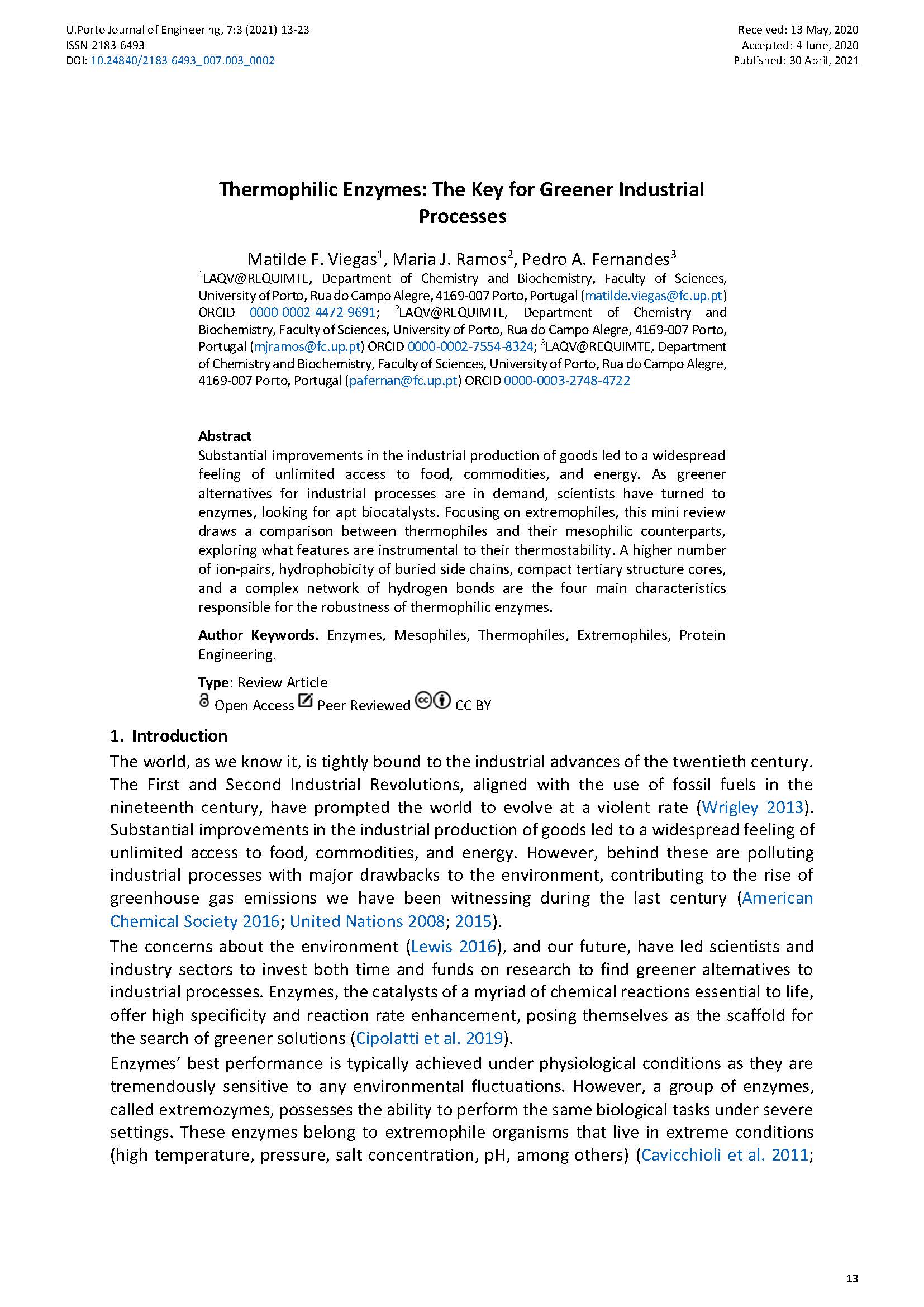Thermophilic Enzymes The Key for Greener Industrial Processes
Main Article Content
Abstract
Substantial improvements in the industrial production of goods led to a widespread feeling of unlimited access to food, commodities, and energy. As greener alternatives for industrial processes are in demand, scientists have turned to enzymes, looking for apt biocatalysts. Focusing on extremophiles, this mini review draws a comparison between thermophiles and their mesophilic counterparts, exploring what features are instrumental to their thermostability. A higher number of ion-pairs, hydrophobicity of buried side chains, compact tertiary structure cores, and a complex network of hydrogen bonds are the four main characteristics responsible for the robustness of thermophilic enzymes.
Downloads
Article Details

This work is licensed under a Creative Commons Attribution 4.0 International License.
Authors who publish with this journal agree to the following terms:
- Authors retain copyright and grant the journal right of first publication with the work simultaneously licensed under a Creative Commons Attribution License that allows others to share the work with an acknowledgement of the work's authorship and initial publication in this journal.
- Authors grant the journal the rights to provide the article in all forms and media so the article can be used on the latest technology even after publication and ensure its long-term preservation.
- Authors are able to enter into separate, additional contractual arrangements for the non-exclusive distribution of the journal's published version of the work (e.g., post it to an institutional repository or publish it in a book), with an acknowledgement of its initial publication in this journal.
- Authors are permitted and encouraged to post their work online (e.g., in institutional repositories or on their website) prior to and during the submission process, as it can lead to productive exchanges, as well as earlier and greater citation of published work (See The Effect of Open Access).

